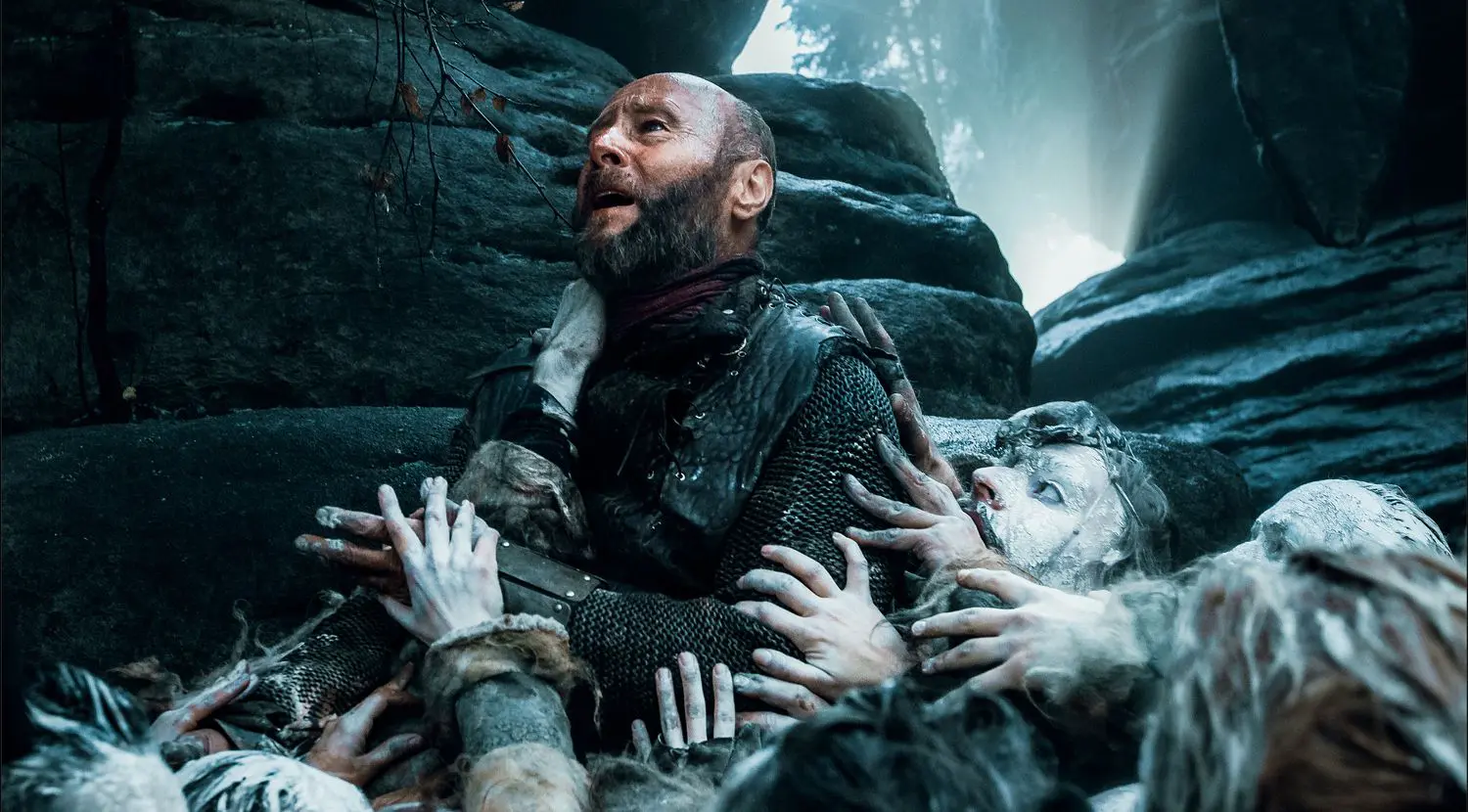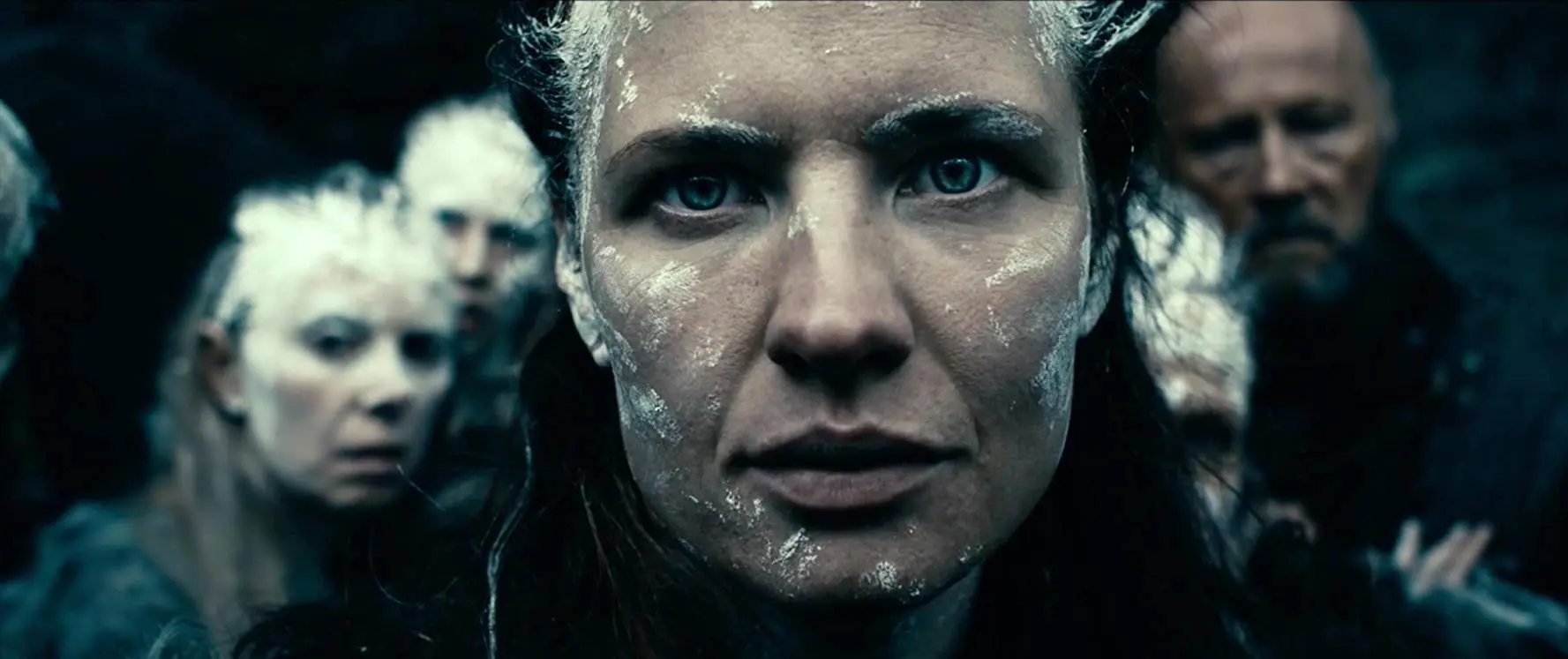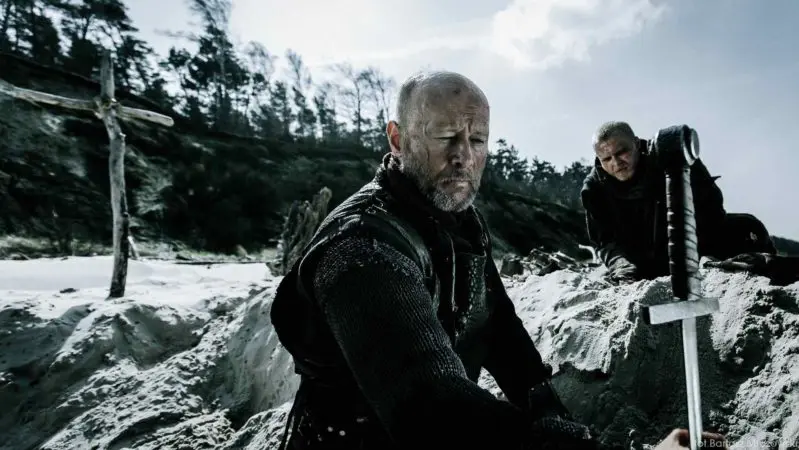Summary
A story of medieval colonialism from Bartosz Konopka; memorable and fascinating, if a little unclear at times.
Sword of God (that’s how it was advertised at Mayhem, though The Mute appeared on the screen) is set in an unspecified time and place; though the time is clearly Middle Ages, and the place looks like northern Europe, maybe Scandinavia. Two men arrive here (where from is also unspecified) to prepare for their king’s arrival by converting any natives there to Christianity. The story follows their contrasting approaches to their mission and the people they meet, and the conflict that arises.
That may not sound like much of a plot, and I admit the plot is spread kind of thin across the 1:40 duration, but Sword of God is more about its theme instead. I’m talking about religious and colonial oppression, and — slight though it is — the plot demonstrates this theme well enough that people in the audience were moved to anger by the end.
The two incomers to this out-of-the-way place are both motivated by improving their relations with the king, having apparently fallen out of favor (the medieval equivalent of ambassadors being sent to Siberia, perhaps). The older man, Willibrord (Krzystof Pieczynski), is a very conservative priest, who assumes pagans need to be civilized via fear or force, and barely considers any alternative. The younger man, who isn’t given a name (Karol Bernacki), has been a knight, but beyond that doesn’t really grasp his place in the world, and so treats this expedition as a means to “finding himself”. He is much more open-minded towards getting to know the native tribe… And the conflict I mentioned arises from the way various parts of the tribe respond to each man, while the tribe as a whole struggles to stay united.
The tribe is fascinating. They are distinguished by white, clay-based face paint, as well as clothing and hairstyles which seem to blend primitive and warrior; and it’s interesting to see some of them gradually soften their harsh appearance as the influence of civilization touches them. What seemed original to me was how close the members of the tribe were, constantly touching (sometimes virtually on top of each other), in healing, anger, and general communication. We follow a few individuals in the tribe, but the one who stood out to me was the main female character (Wiktoria Gorodecka) because she seemed to carry much of the burden of bringing sides together, and the anguish there was portrayed beautifully.

The acting overall was flawless; indeed that and the cinematography were better than any other Polish film I’ve seen (though granted, that may be partly due to my limited exposure to date). The cinematographer deserves to be credited for sure: Jacek Podgórski presented landscapes (especially misty forests) as well as intimate pictures of the pagan tribe like they were home to him, and they almost felt like home to me.
Sword of God was directed (and co-written) by Bartosz Konopka, and he draws the people, place, and theme into a very strong feature. The plot is, unfortunately, a little unclear at times; whether that is because of language issues (the civilized men are awarded subtitles, while the pagans’ language has no translation) or simply the “slow burn” style, I don’t know. In fact, it was only after digesting and discussing the film afterward did the details of the story become clearer; and I’m relieved to say I was not alone in that.

Before Sword of God had its UK premiere at Mayhem Film Festival 2019, Steven Shiel explained that this isn’t the kind of thing his audience would normally expect from the festival, but he considered it to be “on the edge of the horror genre”. By the time the film reached halfway, his point was made: some of it is very difficult to watch, and this is not a film for those who are sensitive to what they see on screen. It is brutal at times, and I can only guess how well that reflects actual European history, though it felt impressively authentic.




